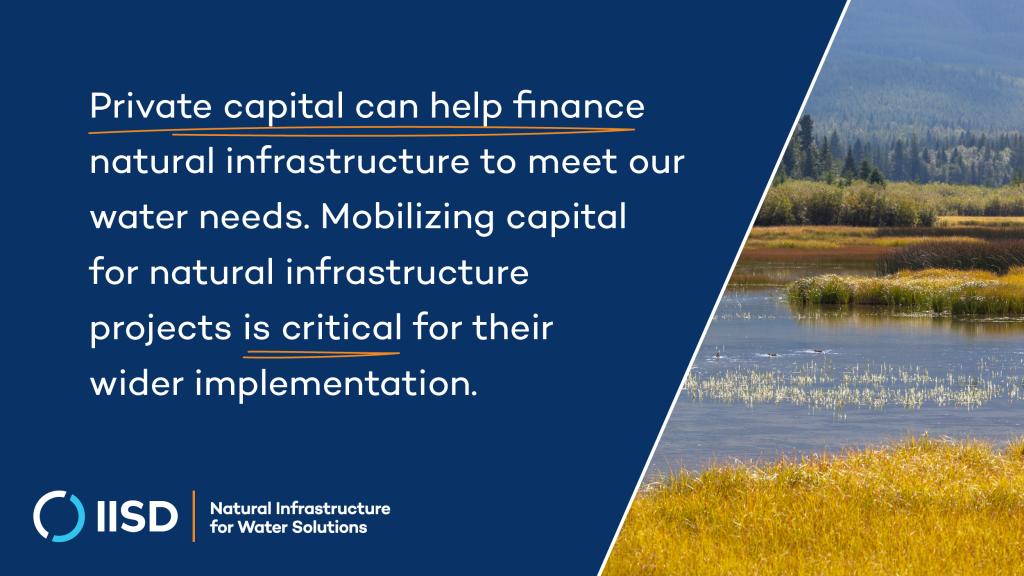
Financing for Natural Infrastructure Projects
Viable pathways to scale up natural infrastructure investments on the Canadian Prairies
Insights on how private capital can finance natural infrastructure to meet our water needs, including an assessment of applicability of the finance instruments to the Canadian Prairies region.
-
Private capital can help finance natural infrastructure to meet our water needs. Mobilizing capital for natural infrastructure projects is critical for their wider implementation.
-
Diverse partnerships between government, private, and Indigenous stakeholders and rightsholders are critical in making successful investments in natural infrastructure.
-
Private investors are considering support of the natural infrastructure sector through mechanisms such as carbon and biodiversity credits, outcomes-based financing, and natural asset companies.
Natural infrastructure is a cost-effective solution to meeting many of our infrastructure needs, particularly those related to water, such as the provision of clean drinking water, flood protection, stormwater management, and climate change adaptation. Natural infrastructure encompasses preserved, restored, and engineered ecosystems, and it harnesses the power of nature to support human well-being through ecosystem services.
Mobilizing capital for natural infrastructure projects is critical for their wider implementation. Historically, public funding from government agencies—such as funds dedicated to support restoration or agricultural best management practices—has been the largest source of capital for natural infrastructure. Nevertheless, commercial financing and private investments are emerging as promising sources of capital for natural infrastructure projects.
This report showcases how private capital can help finance natural infrastructure to meet our water needs, the factors that go into financing decisions, and the benefits from the investments.

Funded by
You might also be interested in
A Scan of Natural Infrastructure Approaches
A scan of communities in Canada that are successfully implementing natural infrastructure to help deliver municipal services.
IISD Annual Report 2023–2024
While IISD's reputation as a convenor, a trusted thought leader, and a go-to source on key issues within the sustainable development field is stronger than ever, the work happening outside the spotlight is just as valuable.
Sustainable Asset Valuation (SAVi) of a Small-Scale Tree Planting Initiative in Côte d'Ivoire
This report analyzes the social, economic, and environmental outcomes of a small-scale tree planting initiative at schools in Côte d'Ivoire.
Unlocking Supply Chains for Localizing Electric Vehicle Battery Production in India
This study aims to highlight the key supply chain barriers in localizing electric vehicle (EV) battery cell manufacturing in India. It summarizes consultations with 12 companies, as well as experts and policy-makers, to determine the crucial challenges and opportunities in localizing battery manufacturing in India.
